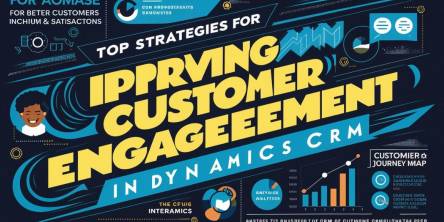Choosing the Right Software Development Partner in 2018

“Creative thinking inspires ideas. Ideas inspire change" - "Barbara Januszkiewicz". All have that brilliant idea for a new product to transform our business. After the market research and having our MVP (Minimum Viable Product) ready, it’s time to get something out there. However, then there is a problem; we don’t have the internal resources to build the product.
What would you do?
• Hire a full-time developer?
• Search for an independent contractor?
• Partner with an agency?
The risks are high, and a wrong choice can wreck your project. Choosing a right partner is a long process and comes down to four key priorities to consider.
1) Technical Skills and Experience
It is always a top priority to find someone who can work well, and on a schedule, else you might miss out on many deadlines, leading to increased frustration and the unpleasantness. To make the risks even higher, the "best practices" evolve at break-neck speeds, when it comes to software development. You need to keep up with the latest trends to restrain your product from getting obsolete when you take it to market.
Regulating the technical skills can be the hardest part of this process as you need to:
• Review similar work they have done for other people.
• Contacting the people they have worked with before.
• You can even try giving them a technical problem to solve as an "audition" before you move forward.
Software development is an intricate task and takes time. However, it is essential to make sure your potential hires have the required ability and experience to work on your product concept, regardless of whether it is a full-time hire, contractor or agency.
2) Availability and Commitment
We must try to keep our product development roadmap and the timeline 100% accurate — but it is rarely the case. Projects often experience unexpected technical roadblocks, or they may pause while some of the other features get completed. Also, the understanding of the product evolves all through the production, and with the final solution accordingly.
Before you hire, get the idea of how they prioritize and schedule projects. How they handle changes and discoveries? Are they available to fix bugs after the launch? Can they train your in-house team to handle tweaks or fixes? Ask all these things before hiring as it is harder to get someone to do bug fixes or maintenance on “someone else's code.”
3) Working Style and Communication
Though technical skills and commitment are pivotal, they are not worth that much if the potential hire can't communicate them effectively. It is more complicated when you hire more than one developer. Hiring an agency is the way to go if you can’t manage team relationships and communications as they already have their working relationships in place.
4) Cost and Value
Though the total financial investment is an important consideration, you should also weigh the cost of the available options against their value. Also, prioritize quality over price as it pays off in the form of quicker deliverable and fewer mistakes.
• Full-time hire: This cost goes way beyond salary as it includes benefits, training, paid time off, office space and more.
• Agency: The project quote from agencies seems expensive, but you can get a quicker turnaround from them for the price paid as they have a big staff to support your requirement.
• Contractor: If you want to start with a smaller budget or want to avoid any long-term commitments then paying hourly to the contractor is a great option.
Each one of those factors is critical for software development partnership, but the best type of hire depends on your needs. As long as you think the hires have the right skills to share your values, you are all set to get started the right way for a successful product launch.
Similar Articles
Among the solutions developed over the past few decades, Salesforce Financial Services Cloud (FSC) has emerged as the definitive choice for gaining flexibility, visibility, and long-lasting, inclusive growth in the financial sector.
Open source software (OSS) is distributed with its source code, which means it can be distributed, modified, and used freely with the original rights. Most users never see the source code, a critical part of the software.
It's one of the keystones, basic but key in the successful highly competitive modern business environment, where the connection with the customer is a must.
The speed of progress in the modern business landscape is quite relentless. For small-scale companies, this implies that keeping up with this progress is not simply gainful but fundamentally significant for their survival. And what does success in such an environment demand?
The finance sector needs to battle many difficulties in the modern and quick-moving digital landscape. Be it exploring the unpredictable snare of official guidelines or overseeing tremendous volumes of data - - financial establishments are feeling the pressure to succeed. This demanding environment, in turn, often leads to exhausted teams, costly manual errors, and inefficiencies that can be chalked up to repetitive tasks
The manufacturing industry, vital to the world economy, is at a pivotal intersection. I mean that, yet again, changes are afoot in the sector, this time driven by digital transformation as it represents a profound change in the very essence of how manufacturers operate, think, and drive innovation.
Technology helps make things easier and faster. Digitization is one of the aspects of technology that has changed how we live and work. It has brought many benefits for businesses, especially the travel industry. Customers can search online for the schemes offered and easily book trips, but payments need to be completed with ease.
In an article published by The Economist in 2017, while describing the astounding growth of titan companies like Google, Apple, Facebook, and Microsoft, it was mentioned how data had become “the oil of the digital era.”
Harnessing the latest technology to create and distribute content is an ongoing process in the media and entertainment industry. Changes in consumer behavior and demands, along with continuous and rapid technological advancements, are reshaping the industry









